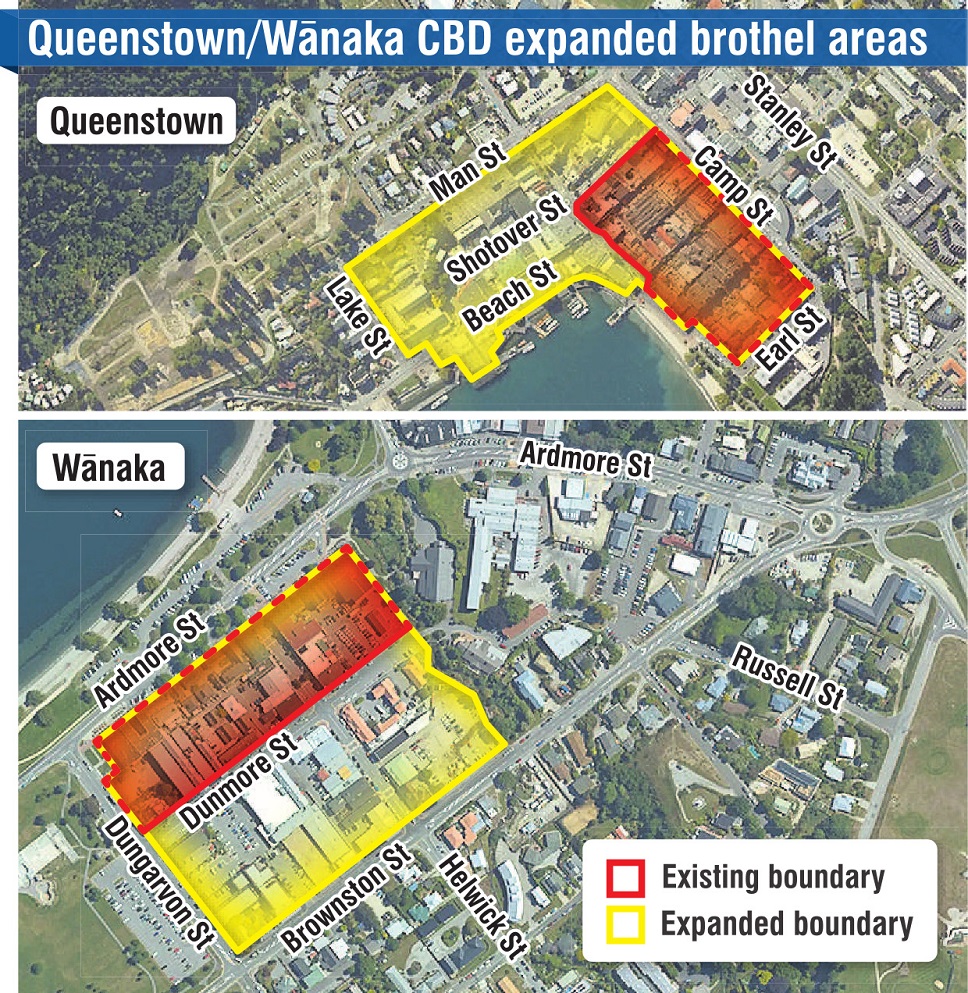
During the public consultation phase of the review, the council asked for feedback on whether to maintain, slightly expand or widely expand the existing boundaries for sex work within the central business districts of Queenstown and Wānaka.
The council decided to take the middle ground in its review of the brothel control bylaw 2024, despite none of the submitters supporting that option.

Nevertheless, the bylaw review panel recommended the middle option in an attempt to balance the two extremes for and against.
Panel chairman Cr Cody Tucker, of Lake Hawea, said the panel wanted to strike a balance between the Prostitution Reform Act 2003 and community sentiment.
He acknowledged that meant the district would still be one of the most restrictive for the sex work industry in New Zealand.
Deputy mayor Quentin Smith, of Wānaka, agreed the panel had found a pragmatic solution.
Mayor Glyn Lewers said he supported the recommendation but felt "a wee bit uncomfortable" given seven submissions came from within the community compared with 13 from outside the district.
However, Cr Melissa White, of Arrowtown-Kawarau, said "quite a few" of those 13 submitters represented people who lived in the district.
Cr Lyal Cocks, of Wānaka, supported the panel’s recommendation because the panel had heard all the evidence, but reiterated his opinion the sex work industry should be treated like any other business under the district plan.

Chief executive Mike Theelen said receiving submissions was not like doing a poll or taking a popularity vote.
"You are weighing up community sentiment against law. That is not an easy thing to do, as reflected by committee recommendations," he said.
The new bylaw comes into effect on September 1.












